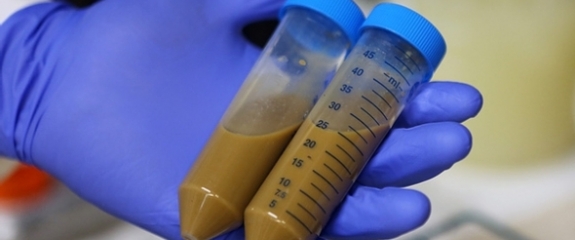Non-microbial components of faeces may have important consequences

With fecal transplants you take the poo from a donor, and give it to a recipient. This is probably the easiest organ donation ever - as a donor, you’re hardly put out at all (there is always more where that comes from), and the transplant is pretty straightforward - you have two options: a tube down the throat or up the bum. But why?
It turns out that the procedure is effective at treating Clostridium difficile, a normal inhabitant of your gut microbiome that can, but it can grow out of control when the status quo in gut becomes unbalanced. Part of the problem with Clostridium difficile (commonly know as C. diff) is its resistance to antibiotics.
The rationale is to re-set the microbiome by introducing a healthy microbiome. And it works! The effects are so remarkable that some scientists are looking at using fecal transplants for other health conditions like inflammatory bowel disease and even obesity. Some companies are even trying to develop treatments bacteria-in-a-pill treatments.
What is being transferred? An article published last month in PLoS Biology asks this question. Summaried in Scientific American, it turns out that there’s a lot more in your poo than just bacteria, and many of these components could plausibly have a biological effect.


